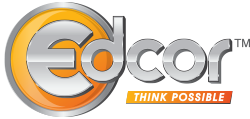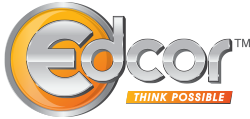As a trusted friend who is known for the love of learning and works in the education benefits field, I am often posed with questions on the best ways to upskill from friends who are working professionals at different levels in their careers with diverse educational degrees. The reasons for upskilling are often varied, but the solution to their questions is repeatedly to do a short-term course through a reputed institute that earns credits, is stackable, and is hopefully covered under their Tuition Assistance (TA) policy. To this, the response is sometimes a sigh due to their employers either not having TA benefits or not covering non-degree short-term courses aka micro-credentials under their TA benefits. Those conversations alone are responsible for this post.
Let’s start with what micro-credentials are and how they help organizations upskill their workforce.
Simply put, Micro-credentials are skill-oriented or competency-based short-term courses that are often flexible and adapt to the student’s style of learning – online, face-to-face, or hybrid. They are intended to be fast, accessible, and specialized. The skills learned are validated through assessments and evaluations, and culminate in recognized proofs of achievement such as certificates or certifications. Although not all micro-credentials are digital, a popular term called alternative digital credentials (ADC) has been used to define micro-credentials that earn digital certificates and badges. Players like edX, Coursera, and Udacity have contributed to the advent, adoption, and evolution of massive open online courses (MOOCs) that fall under the micro-credential umbrella. They may or may not be credit-bearing (credit earning) and/or stackable (connected credentials that make a coherent academic pathway). Also, based on where they are earned from, micro-credentials are often accepted by institutes of higher learning in the U.S. as credit towards a degree.
A recent study from EdReseacher on MOOC-Based Alternative Credentials that surveyed around 26,000 learners (out of which 25% were from the U.S.) reports that
- 94% of completers reported learning new skills
- 38% of completers reported that the programs helped improve their job performance
- 8% reported that the program was an important factor for their employer in moving them to a different job
Covering micro-credentials under a company’s TA policy makes it holistic and marks it beneficial for a wide range of employees for whom a degree is not the optimal solution to fill skill gaps. This includes employees who already have higher education degrees, and also those who can’t commit to a degree right away based on their current life circumstances. Often these populations are either overlooked or shy away from upskilling because the traditional route is not suitable for them. This leads to underutilization of education benefits, which is undesirable for employee engagement and retention in the labor market that we are currently in.
Including micro-credentials under your TA benefits can help
- Employees who plan to do a degree but don’t have the bandwidth to commit to one right away. By building credits earned through stackable micro-credentials that are transferrable toward a two to four-year degree, they can inch closer to their educational goals.
- Employees who have advanced degrees but need to fill skill gaps with short-term courses or certifications to either transition to new roles or excel at their current ones. Either way, it helps in strategic workforce planning.
- Employees in Leadership roles who need to keep up with the changing demands of business management.
- Employees in technical roles or roles that need continuous maintenance of licensure and certifications.
- Millennials and Gen Z learners who prefer bite-sized pieces of everything are among the highest users of this form of learning. This is also the population that will hop jobs for the sake of or lack thereof of learning and career advancement opportunities. Taking one credential after the other for the skills they need, and building it up, is how this population of young learners like working toward their professional and educational goals.
So, why is it that some organizations are iffy about including micro-credentials in their TA policy?
The major reason is that micro-credentials confuse employers and learners. The marketplace is flooded with alternative credentials making it difficult to assess the quality, verifiability, return on investment, and skill transfers back to the job. There is high demand and eagerness to fill skill gaps with this shorter, focused modality of learning but often employers and learners fail to make sense of the offerings. But can you really blame them when there are more than a million unique education credentials that exist in the U.S.?
This is where Edcor steps in. We vet the credentials in the marketplace for you and present the most dependable ones to help you streamline your educational offerings under your TA policy, alongside simplifying the learning journey for your employees. We deliver this value through the Edcor School Network and Edcor Academic Advising.
Our network has a select group of regionally and nationally accredited high-repute educational institutes that have micro-credentials as a part of their program offerings. Many of these micro-credentials are also credit-bearing and stackable adding to the benefits listed above. Additionally, Edcor has also vetted and partnered with organizations that offer skill boot camps in highly-desired competency fields. Further, Edcor Academic Advising – purely focused on the learner’s educational goals and complimentary for Clients – demystifies the marketplace and micro-credentials for learners.
To sum up, is covering micro-credentials under your TA policy a good idea? Absolutely – cuz we got you!

Edcor is a woman-owned business and is the benchmark in education benefits administration. For 40+ years, our customized service and solutions have allowed Fortune 500 Clients to use education benefits programs for employee recruiting, retention, and development. Please feel free to reach out to us!
Spardha Khera, Edcor



